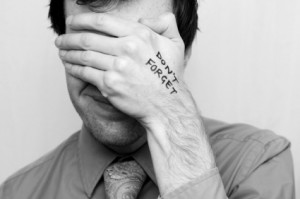Crisis intervention
Do you remember where you were when you heard the news that America was attacked by terrorists? Generations before us knew where they were when FDR gave his D-Day speech and President Kennedy was assassinated.
 Millions of people were intimately affected as their safe world was shattered on September 11th. I was teaching a Masters course titled, “Crisis Intervention” in an NYC University. How could I possibly teach students about crisis when they were personally living through one? As I reflect on that time, my heart still aches for those who perished and for their families and friends, who still mourn.
Millions of people were intimately affected as their safe world was shattered on September 11th. I was teaching a Masters course titled, “Crisis Intervention” in an NYC University. How could I possibly teach students about crisis when they were personally living through one? As I reflect on that time, my heart still aches for those who perished and for their families and friends, who still mourn.
Reactions are hard to avoid as the effects of psychological trauma can last a lifetime. Although you will probably feel better a week or two after the anniversary of a public tragedy, the problem is that there seems to always be another anniversary right around the corner.
Traumatic anniversaries
- The space shuttle Challenger explosion: January 28, 1986
- Martin Luther King assassinated: April 4, 1968
- Oklahoma City bombing: April 19, 1995
- Columbine High School massacre: April 20, 1999
- Kent State shooting: May 4, 1970
- Death of Michael Jackson: June 29, 2009
- Death of John F. Kennedy Jr. in a plane crash: July 16, 1999
- Hurricane Andrew: August 24, 1992
- Hurricane Katrina: August 29, 2005
- Death of Princess Diana: August 31, 1997
- WTC and Pentagon Terrorist Attack: September 11, 2001
- Matthew Sheppard hate-crime: October 6, 1998
- Marshall University Thundering Herd football team plane crash: November 14, 1970
- Pan Am Flight 103 bombing: December 21, 1988
Here are some simple tips to get through your anniversary reactions:
To cope with anxiety and nervousness, take several healing breaths throughout the day. Do things that help you to maintain a positive attitude. If you feel sadness, speak with a friend or family member about your feelings. Try something more active, donate to a charity of your choice in memory of the person(s) who died or give blood and mindfully focus on how you can save a life. During times of trauma, it’s important to reflect on the positive things in your life. It’s a good idea to become educated about grief symptoms and PTSD in order to better cope when tragedy strikes or when tragic anniversaries cross your calendar.
If you were traumatized by a public tragedy, your heart probably raced, your sadness overwhelmed, your anger exploded and you felt unsafe. Although years pass, these reactions reappear during the anniversary of traumatic events. Know that you are not alone as you remember where you were when and that an entire nation mourns with you.





